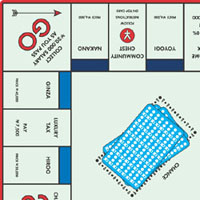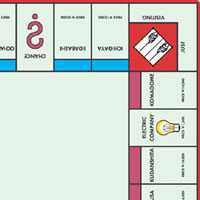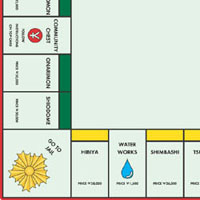Breaking Up is Hard to Do
Back to Contents of Issue: January 2004
|
|
|
|
by Glenn Newman |
|
|
Then disaster strikes.
The distributor denies the supplier has the right to terminate or refuse to renew the contract and demands reinstatement or substantial damages as compensation for its alleged losses. The dispute between the distributor and the supplier persists for an extended period, marring all transition efforts. Relationships with customers begin to fray. The foreign supplier may opt for direct sales but is ultimately unprepared for what this involves. Sales decline, sometimes precipitously. In desperation, the foreign supplier crawls back to its former distributor or desperately engages a new one.
Thankfully, this scenario is not inevitable. If you happen to be a foreign supplier and you carefully pave the way for the eventual termination of your contract with your distributor (preferably from the moment you decide to enter the Japanese market), much of the above can be avoided.
I will review below a couple of hurdles to the termination or non-renewal of Japanese distributors and offer some tips on the selection of distributors and the structuring and administration of distribution agreements, all to improve your prospects of successfully terminating your Japanese distributor and moving to a new sales channel.
There are numerous potential roadblocks in the path of a clean termination or non-renewal of your Japanese distributor. Two of the most critical relate to both legal and business domains.
First, it is important to know from the start that Japanese law may in fact favor the distributor. Distribution agreements usually have a fixed term of one to three years. At the end of the term, the agreement may be renewed either upon the express consent of the parties or, in some cases, automatically -- unless either party provides the other party with notice of non-renewal. Distribution agreements also ordinarily permit suppliers to terminate the contract prior to expiration if the distributor materially breaches the agreement and fails to cure the breach within a predetermined period of time. Some distribution agreements also give suppliers the right to terminate the agreement early "without cause" (that is, for any or no reason) by giving the distributor notice.
But here's the catch: These escape clauses may not be worth the paper they're written on.
Japan, like many other countries, has adopted a generally protective stance toward distributors. In cases where a distributor has made a substantial investment of time, money or effort to develop a market for a supplier's products, courts have imposed restrictions on a supplier's right to terminate its distributor even if the supplier has terminated in accordance with the agreement -- indeed, even if the distributor has breached the contract.
Japanese precedents are less clear about whether a supplier has an unimpeded right to refuse to renew a distribution agreement. However, it's a safe bet that in the case of non-renewal a Japanese court would apply principles similar to those it has used in unilateral termination cases. And the courts would likely impose similar sanctions on a supplier who failed to renew a distribution agreement, especially if the distributor had made a substantial investment and the supplier failed to give "adequate" notice of its intent not to renew. What a court considers "adequate" notice may exceed the notice period stipulated in the distribution agreement.
Foreign companies tend to underestimate their exposure to legal liability in Japan because of the comparatively low level of litigation. But they do so at their peril. If pushed to the wall, Japanese distributors are not averse to taking (or threatening) legal action to enforce their actual or perceived rights. Distributors are frequently aware of their legal position and tailor their negotiating arrangements accordingly. You should likewise take legal issues into account when entering a distribution agreement so as to be able to negotiate from a stronger position in case of a wrongful termination or similar claim.
Long-term commercial success in Japan (or anywhere else) demands a thorough understanding of the local market and business practices. Having a good product or service is rarely enough. Foreign companies wishing to sell in Japan frequently lack market know-how and rely on their local distributor to fill in the gaps. Using a distributor can be a great (perhaps the only) strategy for foreign companies just entering the Japanese market.
However, foreign suppliers sometimes neglect their own study of the market once they hire a Japanese distributor. Your Japanese distributor may even discourage your study of the market by cultivating a belief that foreigners can never understand Japan, and so it's best to leave everything in their hands. Some distributors seem to believe that the only good supplier is an ignorant supplier.
Another consequence of overreliance on your Japanese distributor is that you may fail to develop your own separate identity in the Japanese market. Customers and other potential local partners may identify the distributor so closely with your products that it becomes very difficult for you to terminate your distributor without risking severe damage to your business in Japan.
In addition, overdependence breeds weakness. Distributors tend not to take the threatened loss of a lucrative product line lying down. An over-dependent foreign supplier may feel forced to retreat from its efforts to terminate a defiant distributor.
The foreign supplier might believe that it doesn't have to develop its own Japanese infrastructure because it plans to hire appropriate staff from the distributor upon termination. This may work in some exceptional cases, but Japanese salarymen are often reluctant to leave stable jobs with their distributor-employer for the local subsidiary of a foreign company.
Obviously business factors predominate when selecting a distributor in Japan. The prospective distributor's sales acumen or technical support capabilities may trump all other selection criteria. Nevertheless, there are a few things that you should watch out for when choosing a distributor in order to reduce the risk of a traumatic or expensive termination.
Some distributors (like some employees) are habitually disputatious. Before entering into a contract, foreign suppliers should conduct some "due diligence" on any prospective Japanese distributors to determine if they have a history of disputes with other suppliers. This kind of information can be hard to unearth in Japan, but you can learn a lot with some judicious digging. Foreign companies may wish to steer clear of serial troublemakers or at least impose upon them a more stringent regime of contract monitoring and enforcement.
It tends to be even more difficult to terminate a distributor that is highly dependent for its revenue on a single supplier. From a legal perspective, courts tend to be more sympathetic to a distributor that is heavily reliant on a single business line. From a business perspective, such distributors may be more willing to aggressively fight a planned termination or non-renewal if their survival is at stake. All things being equal, you may be better off selecting a fairly large and diversified company to be your Japanese distributor.
As a general rule, the more investment that a distributor is contractually or practically required to make in order to develop a market for the supplier's products in Japan, the more difficult or expensive it will be to terminate the distribution agreement. You should consider hiring a distributor that already possesses most of the personnel and resources it will need to market and sell your products.
Careful advance consideration of the structure and terms of the distribution agreement can help reduce your risk of an acrimonious termination or non-renewal.
For example, it can be more difficult to terminate a distributor (who buys product from the supplier and sells at risk) than a sales agent or representative (who solicits or facilitate sales for the supplier, earning a commission on each sale). The level of investment made by a distributor also often exceeds that of a sales agent, making the distributor more likely to dig in its heels in the teeth of a threat to end its franchise. In addition, distributors often have a higher profile with customers than sales agents, making them harder to remove without seriously disrupting the supplier's business in Japan. Consequently, you may wish to consider opting for a sales agent rather than a distributor when structuring your Japanese representative agreements.
To reduce the risk that a long contract term will make the termination or non-renewal process more difficult, you should insist upon a relatively short contract term (not to exceed three years and preferably no more than one year). You may, of course, wish to renew the distribution agreement at the conclusion of its term. In that case, you should avoid, both in the contract and in practice, automatic renewal. In the run-up to expiration, carefully review the distributor's performance over the prior term internally and in one or more meetings with the distributor. Through your annual review process and your attitude, make it clear to the distributor that renewal must never be taken for granted.
It's generally trickier to uproot exclusive distributors than non-exclusive distributors. From a commercial standpoint, an exclusive distributor may become more identified with your products and therefore more difficult to remove without damaging your business in Japan. On the legal front, an exclusive distributor tends to invest more heavily in market development activities and to become more dependent on its supplier then a non-exclusive distributor -- both important factors when a court considers the merits of a wrongful termination claim.
If business conditions permit, you should consider granting only non- exclusive rights to Japanese distributors. Alternatively, you could base the grant and continuation of exclusive rights on the distributor's achievement of significant sales milestones.
The supplier often wants to restrict its distributor's right to sell competitive products both during and for some period after the term of the distribution agreement. The business rationale for insisting upon such restrictions is compelling in many cases. However, such restrictions may be damaging to the supplier if the distributor asserts a wrongful termination claim. A Japanese court may be more inclined to award the distributor higher damages and/or require a longer notice period in a wrongful termination case if it perceives that restrictions led the distributor to become overly dependent on its supplier or limited the distributor's ability to diversify its business. (Furthermore, restrictions on a distributor's right to sell competitive products may also violate antitrust or unfair trade practice rules. Always seek legal guidance before imposing such restrictions.)
For example, the agreement could require your distributor to meet specified sales quotas (not merely targets) and do so not only on an aggregate basis but by individual product; maintain a certain level of sales and technical support staff; establish regional sales and/or customer service offices in designated locales; and set spending floors for marketing and/or training activities.
You should have the right to periodically (no less than annually) evaluate the distributor's performance. The evaluation process should be comprehensive and include at least one high-level meeting between you and your distributor. You should candidly identify to your distributor areas requiring remedial attention. Both the evaluation and minutes of meetings with the distributor should be recorded in writing, with copies sent to the distributor. Also, in order to ensure that your distributor is accurately reporting its sales and complying with the contract terms, the agreement should offer you the right to periodically review your distributor's books and records and be given access to its personnel for interviews.
The distribution agreement should expressly allow you to attend meetings with Japanese customers. You should routinely avail yourself of this opportunity by attending meetings with key Japanese customers. The assumption of direct sales following termination will be smoother if you have already started to develop personal relationships with each of your customers.
You should consider including in the agreement a clause granting you the right to conduct periodic surveys of customer satisfaction in Japan. If the survey results indicate that customers are dissatisfied with the distributor's performance, you should have the right to demand the distributor take immediate remedial action and to terminate distribution rights if the situation does not improve.
Effective selling usually requires close personal relationships developed over a lengthy period of time. This is especially true in Japan. Your ability to pick up where your distributor left off may depend on whether you can keep in place the same sales and technical support staff the distributor had assembled to serve your accounts. Therefore, the distribution agreement should, if possible, expressly permit you to tender offers of employment to distributor personnel following termination. Ideally, the distributor should be required to encourage (or at least not try to dissuade) its employees to accept your offers.
The relationship between you and your distributor should be friendly, but kept at arm's-length. In most cases, therefore, you would be wise to resist the temptation to take an equity stake in your distributor. Equity participation may blur the lines between the two companies and create conflicts between your interests as a supplier and your interests as a shareholder. Taking equity may also make it thornier to disentangle yourself from your distributor upon termination.
The agreement should explicitly state that you bear no liability if the agreement is terminated or not renewed in accordance with its terms. This clause might not always be enforceable, but its presence might inhibit the distributor from bringing a claim against you or at least serve as evidence that the distributor entered into the agreement with eyes open and therefore cannot reasonably expect hefty damages. In some cases, you might be better off including a liquidated damages clause in the agreement to predetermine the maximum amount of damages you will owe to the distributor, even in the case of wrongful termination.
To ensure a smooth transition, you should insist that the agreement require the distributor to cooperate with you following termination or non-renewal. If there are any specific tasks you will want the distributor to perform, those tasks should be listed. For example, you might want the distributor to prepare reports on the status of particular sales and marketing campaigns or conduct joint visits to customers to formally hand-off sales and/or support responsibilities. If there any outstanding maintenance or service contracts between the distributor and customers, the distribution agreement should indicate whether those contracts are to remain in place or be assigned to the supplier, and on what terms.
You should request that the distribution agreement be governed by the laws of your country and that any disputes will be finally resolved by the courts or an arbitral forum in that country. Such clauses are ordinarily enforceable in Japan. Compelling your Japanese distributor to litigate or arbitrate in the supplier's country can be a powerful deterrent to a wrongful termination claim.
A contract is -- or should be -- more than just words on paper. The best contract terms in the world are meaningless -- or worse, counter-productive -- if they're forgotten once the agreement is signed. Indeed, your distributor may be counting on you not enforcing (or even remembering) the terms after the agreement is executed. Failure to diligently enforce the contract terms will make it tougher for you to terminate the distributor and move to a new sales channel.
The key to contract administration is easy to say but hard to do: enforce.
Contracts are not self-enforcing. To effectively administer the contract, the supplier should appoint someone to "own" the contract administration function and hold that person accountable for his or her performance. The contract owner must dive into the contractual nitty-gritty, persistently enforce its terms, be capable of withstanding opposition from colleagues who might prefer that the distributor's lapses be ignored in the interest of amity and short-term sales considerations and keep detailed written records. In short, compulsive, detail-oriented types are the best contract administrators. Consequently, contract administration should generally be delegated to the finance or legal departments, not to the sales department.
If you have in place a solid contract that has been diligently administered, you'll be in a strong position to terminate the distribution agreement without excess heartache. You should give your distributor as much notice as possible of your decision not to renew or terminate the agreement. Preferably, notice should be given long before it is contractually required. Allegedly inadequate notice has been a key judicial factor in damage awards to distributors.
Notice of termination or non-renewal should be delivered strictly in accordance with contract requirements (e.g., if the contract requires that notice be sent be registered mail, send by registered mail). In particular, do not expect oral notice of termination to be effective. The notice should also remind the distributor in detail of its post-termination obligations, such as its obligation to return confidential or other materials, assist with the transition, assign customer accounts, et cetera.
"For cause" terminations create more grief than other types of termination. Consequently, it is essential that you be prepared to show that you have objective, substantiated and contractually valid grounds to terminate. Avoid terminations on grounds perceived as pretextual (such as termination for the breach of a technical provision or sudden termination for a longstanding breach of a term which had theretofore never been enforced).
Whether you intend to commence direct sales or appoint a new distributor, you should be prepared to move quickly after termination to pick up where the distributor left off. You should have a detailed plan to immediately contact your Japanese customers after termination and inform them of the new state of affairs. In addition, all proposed terminations or non-renewals of distributors should be subjected to legal review to ensure that they comply with legal requirements and contractual terms. Legal counsel should prepare, or at least review, the notice of termination or non-renewal and other communications with the distributor and customers.
Finally, foreign companies typically want to terminate their Japanese distributors either because they believe they can find a better distributor or that they will be more successful selling directly. This is doubtless true in many cases. However, be wary of the notion that sales will automatically improve if only the "right" channel is found. The grass is not always greener with a new sales channel.
Before dropping your Japanese distributor, ask yourself a few questions: Do we have a realistic alternative channel that will be ready to go immediately following termination? Are we convinced, by hard analysis and not wishful thinking, that our alternative channel is likely to be an improvement over our current distributor? If termination "for cause" is planned, do we have solid grounds? Are we willing to accept the market disruption that may result from termination (including a possible short-term loss of sales even if the termination is successfully managed)?
If we intend to move to a direct sales model, do we have the necessary know-how, personnel and staying power to succeed in Japan over the long-term? Are we willing to do business the Japanese way (such as providing extensive and continuous customer support at no charge)? If not, are our Japanese customers willing to do business your way? What will our Japanese customers think of the termination, especially if it turns nasty? Will our image in Japan suffer? If so, what counter-measures should we take? Does the termination of the agreement create a "window of opportunity" for our competitors? If so, how can this be counteracted? The termination of a distribution agreement, particularly in a market as important as Japan, is a potentially momentous event. Your adoption of a systematic and clear-eyed approach to the hiring, handling and firing of your distributor may avert disaster. @
|
|
Note: The function "email this page" is currently not supported for this page.


 IT'S A SAD BUT familiar story: A foreign company decides to enter the potentially lucrative but notoriously difficult Japanese market. Seeking to speed market penetration while minimizing entry costs, the company partners with a Japanese distributor. In short order, the distributor begins to deliver solid returns. Time passes. Japanese sales continue to be healthy, but growth is unspectacular. The foreign supplier concludes that it should go it alone by dropping the distributor and selling directly to its Japanese customers -- or appointing another distributor. The supplier gives notice of termination or non-renewal to the distributor.
IT'S A SAD BUT familiar story: A foreign company decides to enter the potentially lucrative but notoriously difficult Japanese market. Seeking to speed market penetration while minimizing entry costs, the company partners with a Japanese distributor. In short order, the distributor begins to deliver solid returns. Time passes. Japanese sales continue to be healthy, but growth is unspectacular. The foreign supplier concludes that it should go it alone by dropping the distributor and selling directly to its Japanese customers -- or appointing another distributor. The supplier gives notice of termination or non-renewal to the distributor.
 In several "wrongful termination" cases, Japanese courts have required the supplier to pay substantial damages to the distributor. A rough average is an award of six months to one year's lost profits; the actual damages awarded may be more or less depending on the circumstances, such as the level of the distributor's investment, the distributor's dependence on the supplier's products to support its business and/or the adequacy of notice and the existence and seriousness of any breach.
In several "wrongful termination" cases, Japanese courts have required the supplier to pay substantial damages to the distributor. A rough average is an award of six months to one year's lost profits; the actual damages awarded may be more or less depending on the circumstances, such as the level of the distributor's investment, the distributor's dependence on the supplier's products to support its business and/or the adequacy of notice and the existence and seriousness of any breach.
 Many foreign companies lack a deep understanding of the Japanese market with the result that they become excessively dependent on their Japanese distributors. A slew of negative implications flows from this over-dependence.
Many foreign companies lack a deep understanding of the Japanese market with the result that they become excessively dependent on their Japanese distributors. A slew of negative implications flows from this over-dependence.
 Excessive reliance on the Japanese distributor may also lead the foreign supplier to underinvest in the development of its own, independent sales, marketing and technical support infrastructure in Japan. The lack of local infrastructure can seriously impede the foreign supplier's efforts to drop its distributor and move to direct sales.
Excessive reliance on the Japanese distributor may also lead the foreign supplier to underinvest in the development of its own, independent sales, marketing and technical support infrastructure in Japan. The lack of local infrastructure can seriously impede the foreign supplier's efforts to drop its distributor and move to direct sales.
 Distribution agreements with very lengthy terms can create a sense of permanence that make them more challenging to terminate later. This sense of permanence may be shared by the supplier (who may use the lengthy term as an excuse to avoid facing the demands of the Japanese market), the distributor (who may fail to diversify product lines and become ever more entrenched), customers (who may become so accustomed to dealing with the distributor that they are unwilling to consider alternative channels) and courts (who may be more willing to award substantial damages to a long-term distributor who has been "abruptly" terminated).
Distribution agreements with very lengthy terms can create a sense of permanence that make them more challenging to terminate later. This sense of permanence may be shared by the supplier (who may use the lengthy term as an excuse to avoid facing the demands of the Japanese market), the distributor (who may fail to diversify product lines and become ever more entrenched), customers (who may become so accustomed to dealing with the distributor that they are unwilling to consider alternative channels) and courts (who may be more willing to award substantial damages to a long-term distributor who has been "abruptly" terminated).
 Post-termination, you will want to smoothly "step into the shoes" of your former distributor. Without detailed information on the country, this can be difficult or impossible to achieve. Therefore, you should ensure that the distribution agreement requires the distributor to regularly provide all information that you will need to assume or reassign to another the distributor's function, such as customer contact information, negotiation history and status, competitor activities, et cetera. You should also obligate your distributor to provide you with copies of all executed end user contracts.
Post-termination, you will want to smoothly "step into the shoes" of your former distributor. Without detailed information on the country, this can be difficult or impossible to achieve. Therefore, you should ensure that the distribution agreement requires the distributor to regularly provide all information that you will need to assume or reassign to another the distributor's function, such as customer contact information, negotiation history and status, competitor activities, et cetera. You should also obligate your distributor to provide you with copies of all executed end user contracts.



